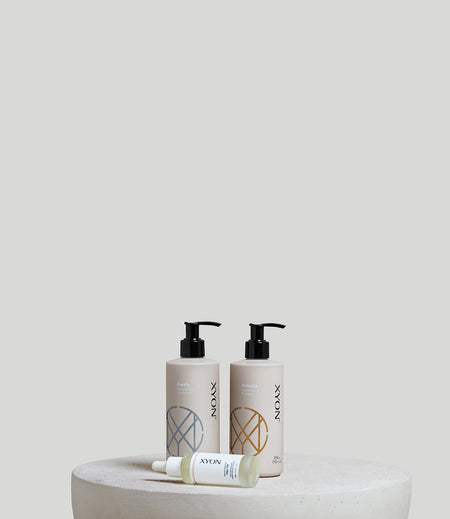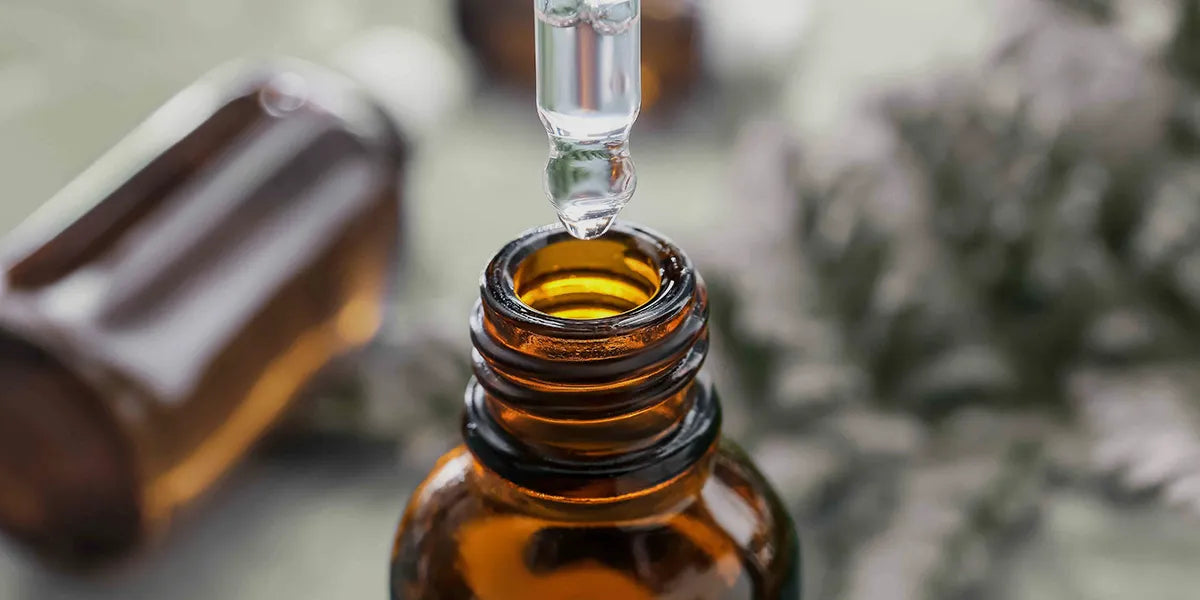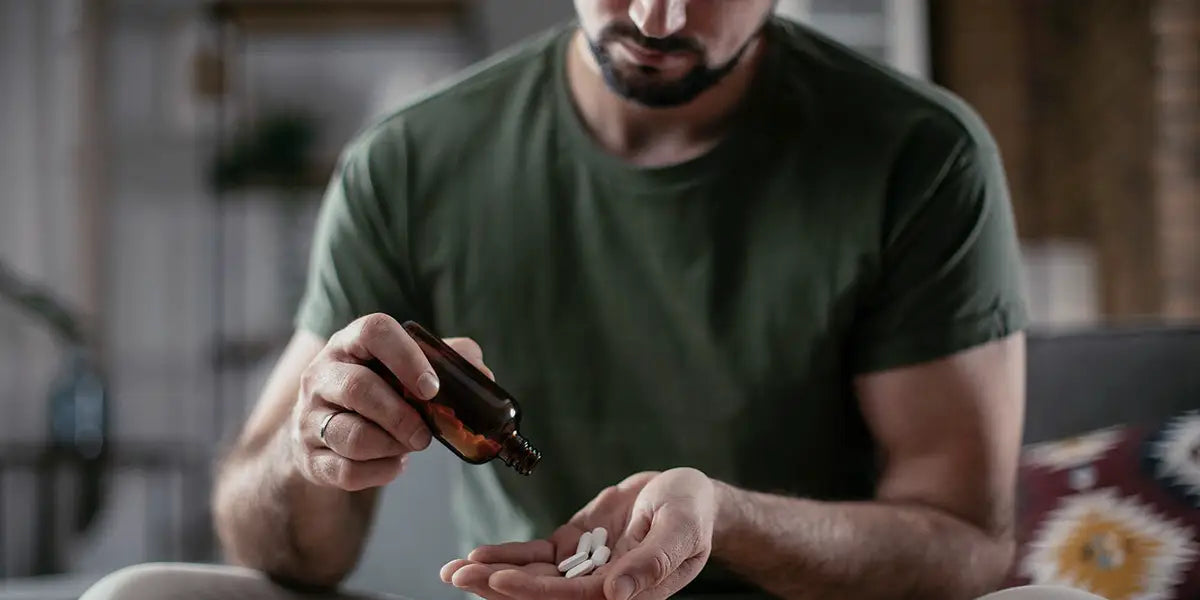Research has pointed to the benefits of using natural ingredients to help grow hair. Treatments or over-the-counter products that include these ingredients might be an option for people who cannot take medications such as finasteride or are concerned about the risk of side effects. These natural alternatives may also be beneficial in cases of less advanced hair loss.
In this article, we’ve rounded up the 6 best natural ingredients for hair growth and explain exactly how they support hair and scalp health.
XYON's natural women's hair loss solutions use the perfect blend of all natural ingredients known to help combat hair loss in women. 

Our Women's Natural Hair Loss Solutions Are Available Now!
How do natural ingredients help with hair growth?
Natural ingredients target different aspects of hair growth. Some increase blood flow to optimize nutrient exchange in the scalp, while others are antioxidants or anti-inflammatories. Antioxidants and anti-inflammatories help remove or neutralize molecules that can cause hair to stop growing.
Other ingredients, such as saw palmetto have also been shown to have anti-androgenic properties. This means that they behave similarly to finasteride to help reduce levels of male sex steroid hormones (androgens) such as DHT and testosterone.
In summary, the most effective ingredients for hair growth are those that:
- Increase blood flow to the scalp
- Have antioxidant and/or anti-inflammatory properties
- Help reduce androgen levels
What are the best natural ingredients for hair growth and thickness?
We’ve selected the 6 best examples of natural ingredients that have been studied specifically for their benefits to hair growth and thickness. Depending on the ingredient, they are available as dietary supplements or even incorporated into hair care products such as shampoos and conditioners.
Our in-house line of Performance DHT-Blocking Shampoos and Conditioners includes all these ingredients and more.
-
Pea sprout extract
Function(s): Antioxidant, growth stimulant
Benefits: Acts on dermal papilla to trigger the active growth (anagen) phase of the hair and contains isoflavones, a plant source of estrogen that may help regulate levels of DHT (Schmid et al., 2013).
-
Saw palmetto (Serenoa repens)
Function(s): Anti-androgen, antioxidant
Benefits: Blocks conversion of testosterone to DHT and contains estrogen-like molecules called phytosterols that help regulate DHT levels (Evron et al., 2021 and Opoku-Acheampong et al., 2016).
-
Rosemary and peppermint oils
Function(s): Anti-inflammatory, antioxidant, increases blood flow
Benefits: Rosemary oil contains various acids with known anti-inflammatory properties, it helps reduce prostaglandins and cytokine production (both trigger inflammation). Peppermint oil contains alkaline compounds that promote the active growth phase of hair (Ahmed & Babakir-Mina, 2020 , de Macedo et al., 2020 and de Oliveira et al., 2015).
-
Caffeine
Function(s): Increases blood flow, growth stimulant
Benefits: Promotes nutrient exchange and combats the inhibitory effects of testosterone on hair growth to encourage a longer active growth phase (Fischer et al., 2007 and Volker et al., 2020).
-
Biotin (Vitamin B7)
Functions: Growth stimulant
Benefits: Helps with the production of key proteins necessary for hair health, including keratin (Patel et al., 2017).
-
Ginseng extract
Function(s): Antioxidant, increases blood flow, growth stimulant
Benefits: Supports the growth of dermal papilla cells, delays cell death following exposure to UV light and contains compounds that help prolong the active growth phase of hair and increase collagen (a structural protein) production (Choi, 2018).
How do these ingredients help regrow hair naturally?
Natural ingredients and extracts with anti-androgenic properties can help reduce levels of DHT (dihydrotestosterone), which is considered a leading cause of male pattern hair loss. But scientists have identified other biological processes that could trigger hair loss, including inflammation and oxidative stress.
Plant-derived antioxidants are important because they help combat chemical changes that can disrupt the normal functioning of dermal papilla cells located in hair follicles. By protecting dermal papilla cells from damage, these ingredients may help maintain hair follicle health and optimize hair growth naturally.
How does inflammation affect hair loss?
Inflammation is part of the immune response. It’s facilitated by a type of molecule called a cytokine. Cytokines are needed in the hair growth cycle to signal the transition from the active phase to the regression phase of the growth cycle (Trüeb, 2002).
However, an imbalance in cytokine levels can cause problems such as long-term (chronic) inflammation. Long-term inflammation located around the hair follicle is referred to as microinflammation, which researchers have linked to androgenetic alopecia (Sadick et al., 2017).
This long-term inflammation is the result of damage done to hair follicle cells. One possible cause is the toxins produced by bacteria that live on the skin (Trüeb, 2002). Other factors such as UV light, environmental irritants and pollutants can also harm cells within the hair follicle, causing them to produce biological byproducts that worsen inflammation (NIH).
These byproducts are also called reactive oxygen species. These molecules are highly unstable and reactive, but have a role in coordinating the immune response Like cytokines, reactive oxygen species become problematic in high numbers. When this happens, it’s referred to as oxidative stress and is destructive to the chemical structures of DNA, proteins and fats (Lobo et al., 2010).
These changes can negatively affect the growth and strength of hair. Fortunately, many natural ingredients, including our top 6 discussed above, exhibit antioxidant properties. These agents effectively neutralize volatile compounds, helping avoid a state of oxidative stress and creating an ideal environment for hair follicle cells to thrive.
6 best natural ingredients for hair growth: Takeaway
Using natural ingredients and extracts to treat hair loss naturally may present an important alternative to traditional pharmaceutical solutions for hair loss.
Large-scale human trials still need to be conducted to determine the ideal dosing, delivery methods and long-term safety profiles of many of these ingredients and they may not replace the need for medication. However, they can be incorporated into hair care routines as supportive measures against thinning hair and to create an ideal foundation for optimal hair growth.




